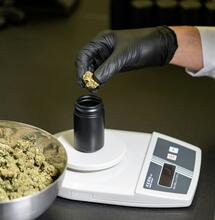Silk Road Drug Kingpin Tried To Kill Witness, Authorities In Maryland Say

Authorities: Silk Road site was Deep Web marketplace dealing in more than $1b of contraband
Authorities: Silk Road site was Deep Web marketplace dealing in more than $1b of contraband
| Ross William Ulbricht, 29, is accused of masterminding the Silk Road online marketplace. [Credit: Google+] |
SOURCE: www.BaltimoreSun.com
AUTHOR: Justin Fenton
An undercover federal agent in Maryland played a key role in the shutdown Wednesday of what authorities describe as a massive online drug marketplace, owned by a 29-year-old engineer who authorities say schemed to kill perceived rivals.
Authorities say Ross William Ulbricht built his Silk Road site into a Deep Web marketplace where buyers and sellers traded more than $1 billion in illegal narcotics using the virtual - and virtually untraceable - currency called Bitcoin.
Ulbricht is accused of serving "several thousand drug dealers" since January 2011.
The site also offered tutorials on hacking ATM machines, contact lists for black-market connections, and guns and hit men for hire, authorities say.
"Silk Road has emerged as the most sophisticated and extensive criminal marketplace on the Internet today," FBI agent Christopher Tarbell said in the criminal complaint.
Ulbricht, the target of parallel but separate federal investigations, was charged by a grand jury in Maryland with conspiracy to distribute a controlled substance and attempted witness murder, among other charges. The indictment was unsealed Wednesday as related charges in New York became public.
Court documents in the two cases lay out how authorities believe Ulbricht became increasingly comfortable targeting for violence those whom he believed could bring down the complex and lucrative online network he had built.
Ulbricht's family in Texas said he was a "good person," who would not hurt anyone. He was held after a brief appearance Wednesday in a San Francisco courtroom. An attorney assigned to his case declined to comment.
The Maryland grand jury indictment covers alleged interactions starting in April 2012 with an undercover agent here. According to prosecutors, the agent told Ulrich that he was a high-level drug smuggler who wanted to move inventory on Silk Road.
Their chats took a turn when one of Ulbricht's employees was arrested in January, authorities say. They say Ulbricht worried that the employee would blow his cover and asked the undercover agent to have him killed.
Ulbricht said he had "never killed a man or had one killed before, but it is the right move in this case," an agent wrote in court papers.
The agent led Ulbricht to believe that the killing had been carried out, including sending staged photos of the employee being tortured, authorities say. On March 1, they say, Ulbricht wired $80,000 from an account in Australia to an account controlled by authorities.
Later in March, authorities say in documents filed in the U.S. District Court for the Southern District of New York, private messages reviewed by federal agents show a Silk Road vendor threatened to blackmail Ulbricht by exposing information about the site's users and transactions.
They say Ulbricht then reached out to a user to take care of the problem.
"I would like to put a bounty on his head if it's not too much trouble for you," he wrote in a message on March 29, authorities say in court documents. "Necessities like this do happen from time to time for a person in my position."
In bartering with the user, they say, Ulbricht wrote: "Not long ago, I had a clean hit done for $80k. Are the prices you quoted the best you can do?"
On April 1, the user told Ulbricht that his problem had been "taken care of" and sent a picture of the victim, records show.
It's not clear whether such a killing occurred. Agents wrote that they could find no record of someone with the name of Ulbricht's alleged target. They said they contacted authorities in White Rock, British Columbia, about a possible homicide on March 31, but the Canadians were unaware of such a killing.
Authorities say more than 900,000 registered users bought and sold drugs using Bitcoin on Silk Road. They say they seized about $3.6 million worth of Bitcoin, which they say is the largest seizure ever of the virtual currency.
Bitcoin, which can be obtained through online exchanges, is used to buy real and virtual products from Internet merchants anonymously.
Silk Road was accessible only through the Deep Web, a corner of the Internet inaccessible to most browsers and search engines, and designed to conceal IP addresses. Investigators said it is "practically impossible" to trace communications back to their original addresses.
Silk Road has been called the Amazon.com of illegal drugs. Authorities say users could buy narcotics and have them shipped to an address. They say investigators posing as regular users made more than 100 purchases of drugs, which were shipped to the New York area.
Authorities say Ulbricht used computers at Internet cafes to access the website, which employed several technological tools to mask the location of its servers and the identities of its administrators and users.
Agents in New York say they determined Ulbricht's identity in part by tracing the origins of the site to discussions on message boards and a site created on the Wordpress blogging platform, leading to his Gmail address.
Authorities say Ulbricht was known on the site as "Dread Pirate Roberts," a character in the book and movie "The Princess Bride."
They describe other aspects of Ulbricht's online presence: In a Google+ profile, the Pennsylvania State University graduate said he was a fan of libertarian economic philosophy and posted videos from the Ludwig von Mises Institute, an Auburn, Ala.-based center of libertarian thought.
Ubricht's parents, reached by telephone in Austin, Texas, said they had not known what their son was doing in San Francisco.
"He is a really stellar, good person and very idealistic," said Ulbricht's mother, Lyn Lacava. "I know he never meant to hurt anyone."
Ulbricht's father Kirk confirmed his son had received a master's degree in material sciences from Pennsylvania State University. His thesis was titled: "Growth of EuO Thin Films by Molecular Beam Epitaxy."
"He did amazing research on crystals and exotic materials they hoped would have some use for humans," Ulbricht said. "But it was very theoretical stuff."
The Silk Road investigation was not the first foray by federal prosecutors into the Bitcoin market. This spring, federal agents in Maryland filed court papers to take assets held by Mt. Gox, a major Japanese BitCoin exchanger, alleging that the company had not properly registered with U.S. regulators.
Mt. Gox lets users turn dollars or other currencies into virtual BitCoins and back again. Authorities have seized $2 million from Mt. Gox's American bank accounts and another $3 million from an account with an Iowa-based payment processing company, according to court records.
Baltimore Sun reporter Ian Duncan and Reuters contributed to this article.
Copyright © 2013, The Baltimore Sun



